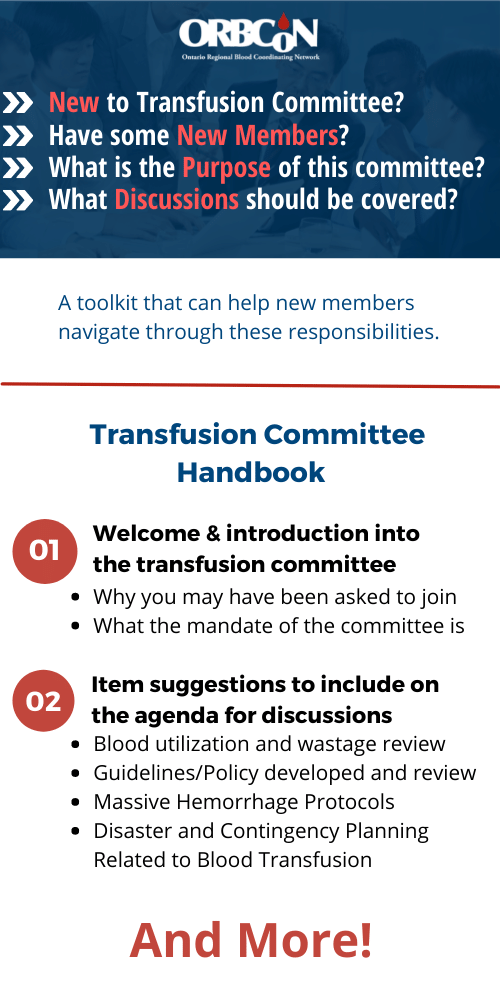Major clinical trial finds convalescent plasma does not help patients with COVID-19
Dimpy Modi, Sunnybrook Health Sciences Centre, University of Toronto QUEST Transfusion Research Program, Research Analyst.
While the race to develop antivirals and vaccines for COVID-19 had begun in early 2020, virus-specific antibodies were seemingly the next best therapy for patients recovering from COVID-19. COVID-19 convalescent plasma (CCP) is donated from people who have recovered from COVID-19 which contains antibodies specific to SARS-CoV-2. It was thought that the transfusion of CCP holds potential to suppress virus replication in patients as it was historically used as treatment for other viruses (e.g., SARS-CoV-1, MERS-CoV, and influenza). However, there was not enough evidence to suggest that it was an effective therapy for patients with COVID-19. To answer this question, the Canadian-led international CONCOR-1 trial was launched in May 2020 by Drs. Donald Arnold at the McMaster Centre for Transfusion Research, Jeannie Callum at the University of Toronto QUEST transfusion research program, and Philippe Bégin at the Centre Hospitalier de l’Université de Montréal.
CONCOR-1 was a randomized controlled trial comparing the treatment of CCP with standard-of-care in hospitalized adults with COVID-19 respiratory illness. This trial included 940 patients across 72 hospitals in Canada, the United States, and Brazil. The study investigators had hypothesized that the early administration of CCP would reduce intubation or mortality. The trial stopped enrolment in January 2021 and the study investigators concluded there was no benefit to receiving CCP. A higher number of serious adverse events were observed in the CCP arm of the study in comparison to standard-of-care. The donated plasma used in this trial consisted of highly variable antibody content allowing for unfavourable (low antibody titres and non-functioning antibodies) to be transfused to the study group. While contradicting other CCP major studies, this finding suggested that high-titre CCP is not helpful, but rather low-titre convalescent plasma is harmful. There is speculation that these unfavourable antibody profiles can be attributed to competing with the patient’s own antibodies and essentially causing a negative or no impact on disease progression. Further investigations are necessary to understand potential risks and benefits of CCP. At this moment, the CONCOR-1 investigators are cautioning against using CCP as a treatment for patients with COVID-19 outside of the setting of a clinical trial.
For more information the publication can be accessed here:
Bégin, P., Callum, J., Jamula, E. et al. Convalescent plasma for hospitalized patients with COVID-19: an open-label, randomized controlled trial. Nat Med (2021). https://doi.org/10.1038/s41591-021-01488-2
Featured Resource: Transfusion Handbook Committee


University of Toronto Transfusion Medicine Rounds
December 16th, 2021 @ 12:00 pm – 1:00 pm
MLT Session: Challenging Serology Cases, presented by Ms. Minda Agpalo, Dr. Waseem Anani, Dr. Celina Montemayor
